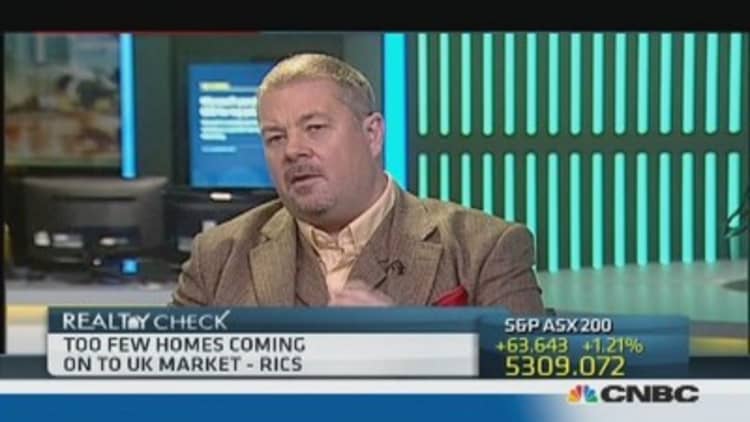The U.K. general election may be 16 months away, but the country's main political parties are already slugging it out for votes, with the finance minister and the opposition leader going to head-to-head over economic solutions to convince the electorate.
With the opposition Labour Party leader, Ed Miliband, delivering a speech Friday on banking reform, Chancellor George Osborne attempted to steal the spotlight the day before by speaking about living standards.
Osborne told the BBC that he wanted to see an above-inflation increase in the minimum wage, arguing that the economy can now afford such a rise. The U.K. minimum wage is currently at £6.31 an hour for people over the age of 21 and is paid to around 1.35 million people.
(Read more: Britons give their verdict on life under austerity)
"Because we're fixing the economy, because we're working through our plan, I believe Britain can afford an above-inflation increase in the minimum wage so we restore its real value for people, and we make sure we have a recovery for all and that work always pays," he said.
While the U.K. economy has shown many signs of improvement, the opposition Labour Party has claimed that this has not translated into improved living standards. Osborne told the BBC that it would need to increase to £7 by 2015, but that the rate would be recommended by the Low Pay Commission.
Today, however, saw Miliband try to move the debate away from living standards - where the Labour Party traditionally has a strong footing - to banking reform. Last year, the opposition leader dominated the political agenda for weeks with his pledge to cap energy bills if elected. He's hoping to repeat that success with his plans for the country's retail banks.
(Read more: UK inflation hits BoE target; first time in 4 years)
In today's speech, Miliband said that banking reform was one of the big changes his government would make in order to build a new economy and pull the country out of its cost-of-living crisis.
Miliband said that the banking system was - like the energy sector - a "broken market" and that the big five retail banks - HSBC, Barclays, RBS, Santander and Lloyds -needed to give up a large number of their branches in order to make the industry more competitive.
"Of course, financial services are an important industry in itself," he said. "But for an industry that calls itself a 'service', it has been an pretty poor servant of the real economy...We need a reckoning with our banking system, not for retribution, but for reform to tackle the cost of living prices."
(Read more: UK retail sales surge in December)
He added: "If we carry on as we are, we will end up stuck with the same old banks dominating our high street: the old economy. In America, by law, they have a test so that no bank can get too big and dominate the market. We will follow the same principle for Britain and establish for the first time a threshold for the market share anyone bank can have of personal accounts and small business lending."
Miliband promised to create at least two "challenger" banks, and that if his part won the election in May 2015, he would ask the Competition and Markets Authority to report within six months on what the limit on a bank's market share should be, along with a timetable for a sell-off of branches.
However, Miliband's comments have been criticized by John Cridland, the director general of the Confederation of British Industry (CBI), who told BBC Radio 4's Today program: "I don't support Ed Miliband's plan to split up the banks. We've got too many proposals from politicians for structural change. Yes, let's have more competition on the high street. But a fixed number of bank branches per bank would lead to less consumer choice and service."

In 1997, the then Labour Chancellor, Gordon Brown, freed the Bank of England (BoE) from direct government control and removed the power by the BoE to control the financial activities of banks in the UK. Brown has since admitted he made a mistake over the handling of regulation in the run-up to the financial crisis.
Miliband will hope that his speech will appeal to the "squeezed" middle class, which are seen as crucial to winning the next election, while Osborne will also hope that his comments show the Conservative Party is now focusing on living standards having improved the general state of the economy.
Interestingly, a new YouGov survey today said that people Ed Miliband as middle class, and more so than the other leaders. 45 percent of voters think of the Labour leader as middle class, compared to only 15 percent for Prime Minister David Cameron. Cameron was seen as upper class by 77 percent of voters.
—By CNBC's Kiran Moodley. Follow him on Twitter @kirancmoodley

